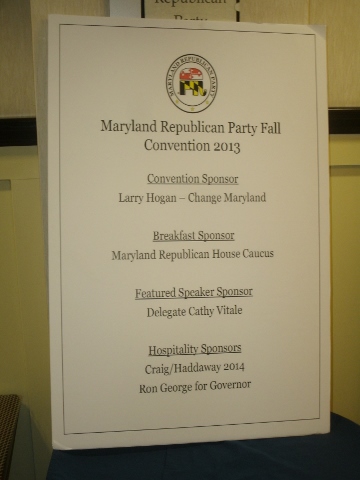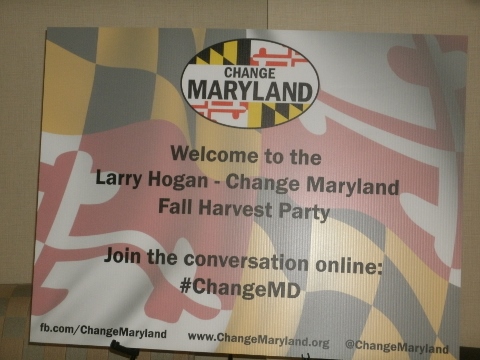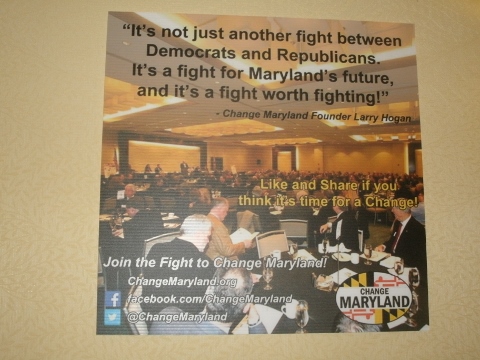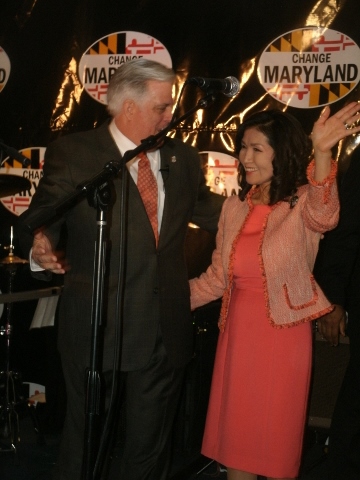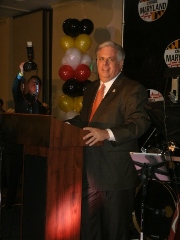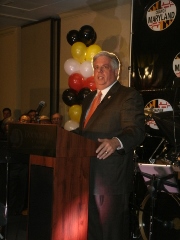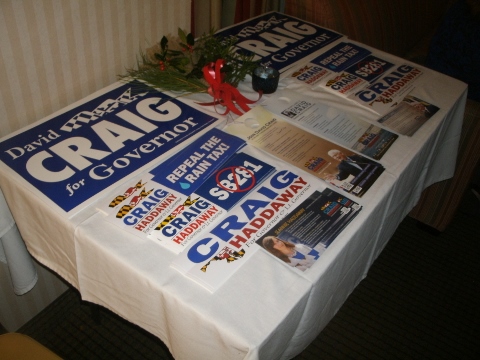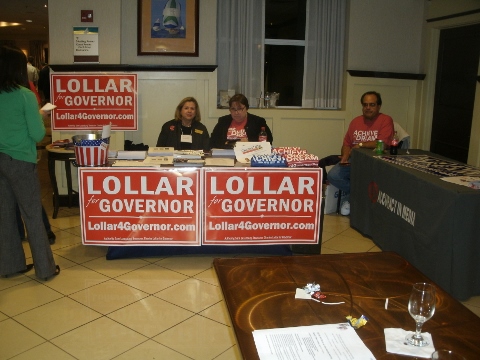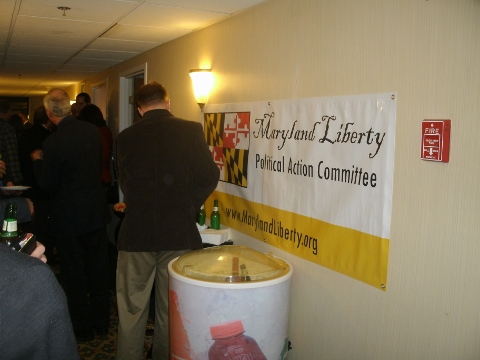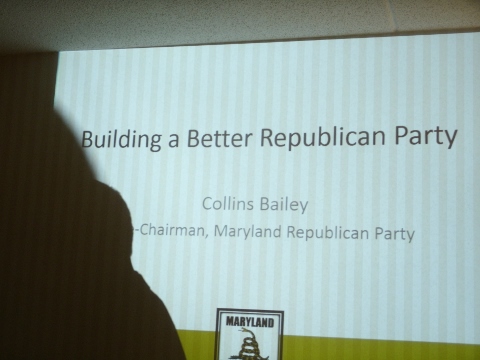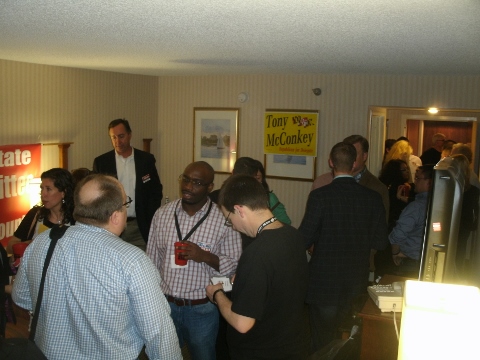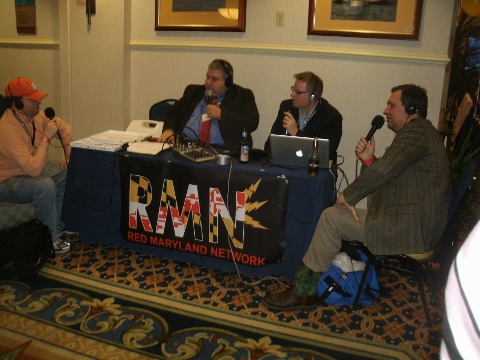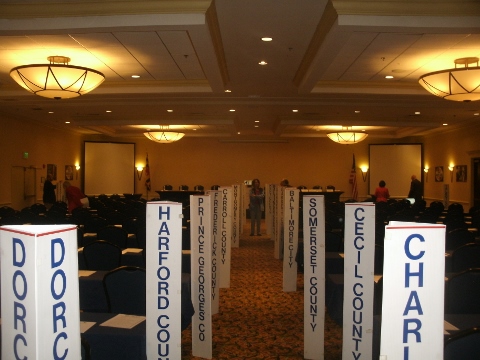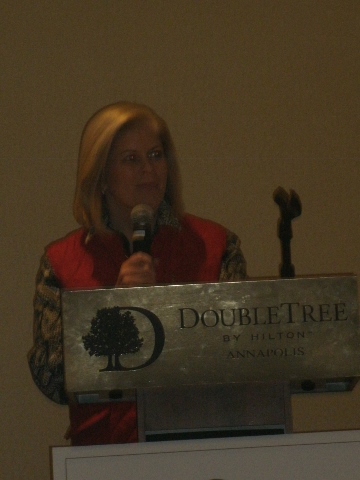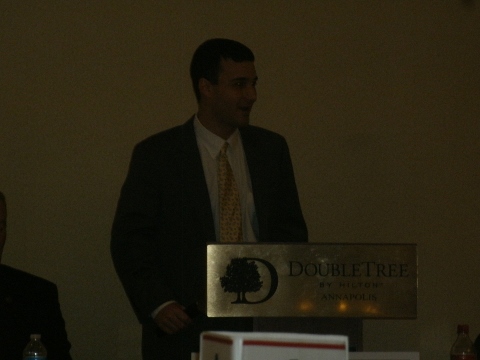It’s not quite as momentous as the 1920 election, where Warren G. Harding made my title part of his post-World War sloganeering, but today the holidays are now behind us, we return to the five-day workweek, and the political world awakens from its slumber later this week as Congress returns to session. (Maryland politicians will wait another week, as the second Wednesday in January falls at its latest possible date, the 14th.) Soon we will begin to see if the solutions that were promised to the voters will be the agenda for the new sessions.
But there are other aspects of “normalcy” we are beginning to see as well, as the power brokers jockey for position in the Republican Party. Case in point: the hue and cry put up by supporters of the next-highest primary vote-getter in the process of selecting a replacement for Delegate Kelly Schulz, who was tapped by Governor-elect Hogan to be his Secretary of Labor, Licensing, and Regulation. It was up to the Frederick County Republican Central Committee to select three people for a final interview process out of the sixteen applicants, and the three they selected were Barrie Ciliberti, a former delegate from Montgomery County who finished fifth in the primary (the top three advanced); Paul Stull, a former delegate who lost to Schulz in the 2010 Republican primary, closing a 16-year run in the House, and Chris Glass, Sr.
Wendi Peters, who finished fourth in the primary, did not get the nod to move on. Her sin? Not being on a slate with Senator-elect Michael Hough, Delegate Kathy Afzali, Delegate-elect David Vogt, and Ciliberti. Instead, she was a supporter of losing Senator David Brinkley – yet she had the backing of Schulz for the seat. A Central Committee chaired by JoeyLynn Hough made the selections.
I’ve been around this block a time or two. As a member of a Central Committee, our focus in selecting replacements was on whether the new person would be relatively conservative and also electable for the next term. Admittedly, we’ve had at least one swing and miss in this regard but the County Council chose not to select our committee’s top vote-getter for a 2011 vacancy. In the instance of picking a Delegate – which we had to help Somerset County do when Page Elmore passed away in 2010 – it occurred at a time when we didn’t want to influence a primary campaign in progress, so we agreed to select his wife Carolyn to finish the term.
In Frederick County’s case, an argument could be made for the former Delegates but personally I would have preferred someone younger than their late seventies, which is the case for both Ciliberti and Stull. But ignoring the voters who picked Peters as the highest vote-getter that didn’t advance – as well as the choice of the Delegate who is leaving the seat to replace her – seems to me a slap in the face to those voters over petty politics and a disservice to the Republicans they purport to represent. It’s a battle which reminds me of the entirety of the District 36 fiasco back in 2013 when Senator E.J. Pipkin resigned.
On a national level, this is reflected in the grassroots movement to dump John Boehner as Speaker of the House. Take as an example an e-mail I received from the Wicomico Patriots:
Now it is time to engage again as Congress returns on Tuesday to swear in the members and to vote for Speaker of the House. Please call or write an email to Andy Harris encouraging him to vote for a new speaker. It only takes 29 congressmen to block Boehner’s re-election as speaker. Once he is blocked, the opportunity is there for a new person to step up.
I am aware that it is potentially politically dangerous for Andy Harris to vote against Boehner. If Boehner were to win anyway, then he can retaliate by removing people from their prestigious positions. Andy Harris is on the appropriations committee, one of the most powerful committees. However, we did not vote for Andy Harris so that he could protect his political power in DC. We voted for Andy Harris to stop the Obama agenda. Boehner has been completely ineffectual in stopping Obama.
So, Andy Harris, will you listen to the people who got you elected and take the difficult step of voting against Boehner or will you continue to follow him?
Your CRomnibus vote was very discouraging to your conservative base. Do we really think that you and Boehner will suddenly get the courage to block the funding of Homeland Security in February? Do you think that blocking funding for that is easier than refusing the whole 1000 page monstrosity called cromnibus?
No, the excuses keep coming as the can is kicked down the road over and over again. Now is the time for you to stand up and fight for us.
Please do contact Andy Harris at: (202) 225-5311. (Emphasis mine.)
And here’s my own message to the Congressman:
For too long we have heard excuse after excuse from your leadership, accompanied by the promise to fight at the next critical juncture. If the Republicans want to be the opposition party they were elected by We the People to be, then they need to show some opposition on Obamacare, on securing the border and addressing executive actions further encouraging the torrent of illegal immigration, and on spending beyond our means. Collectively, you will be painted as a “do-nothing Congress” by the President, Democrats, and media (but I repeat myself) anyway so just pass those common-sense measures and dare Obama to veto them.
In short, we want a Speaker of the House with the backbone to stand up to Barack Obama so we demand you withhold your vote from John Boehner. It’s worth pointing out that a 2016 Congressional run from a conservative member of the Maryland General Assembly is possible and doable – just as you did against a sitting Wayne Gilchrest when you were first nominated in 2008. Certainly there would be a monetary disadvantage for the challenger, but in my opinion no one should be immune from a serious primary challenge – particularly if he or she isn’t listening to the wishes of the district being represented. A poll cited by Jim Geraghty of National Review Online shows 60% of Republicans would “probably” or “definitely” replace Boehner as Speaker. Even as an Ohio native, count me as a “definite.”
These are two stories to keep your eye on in the coming days. Why do I get a sinking feeling they won’t end well for the good guys?


